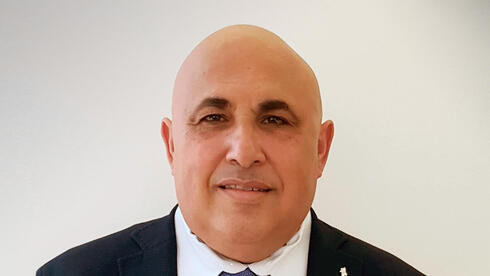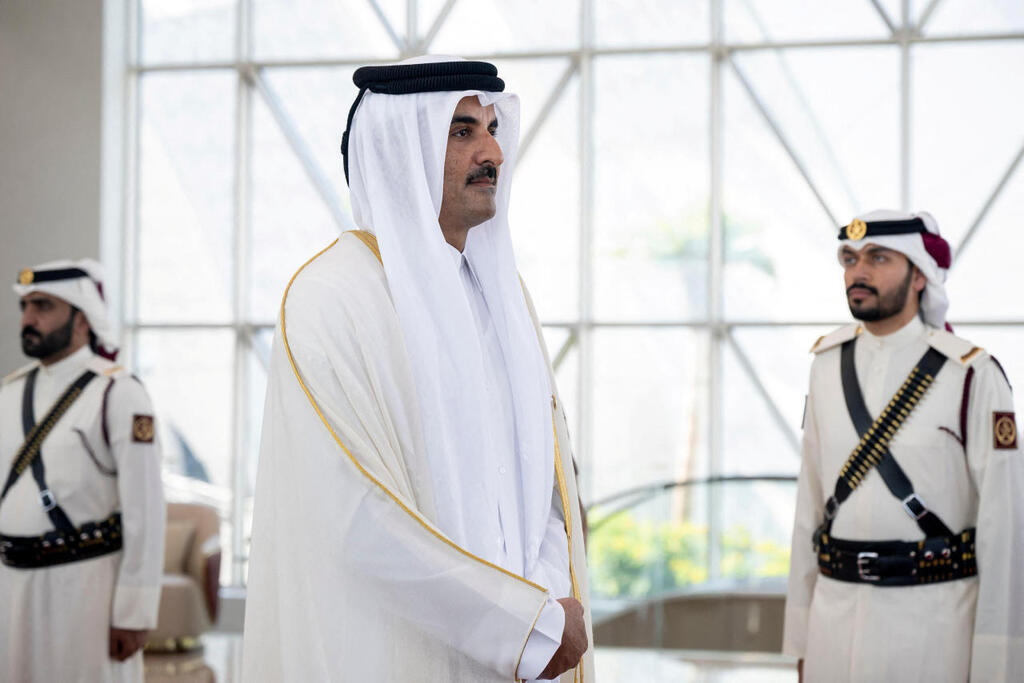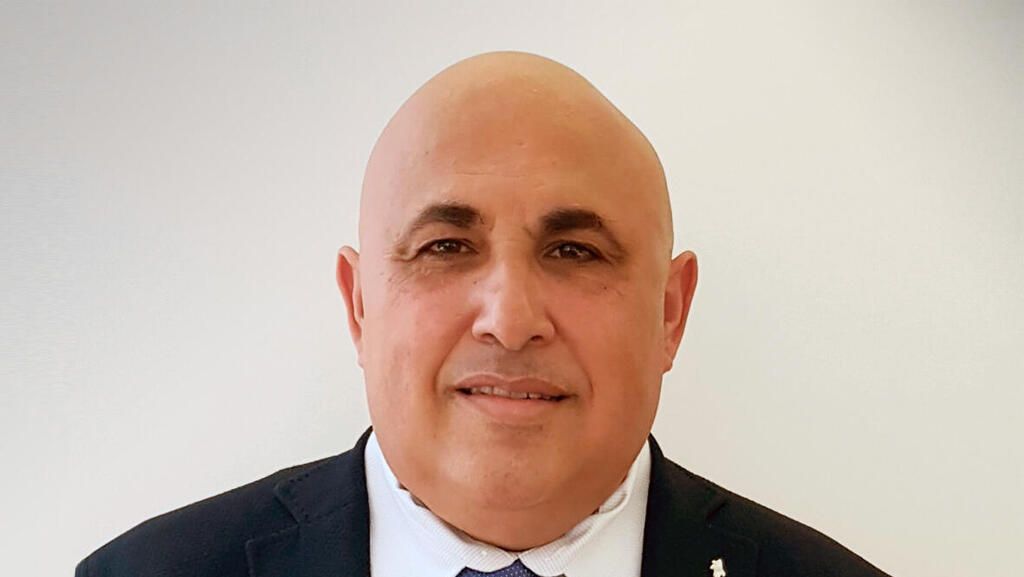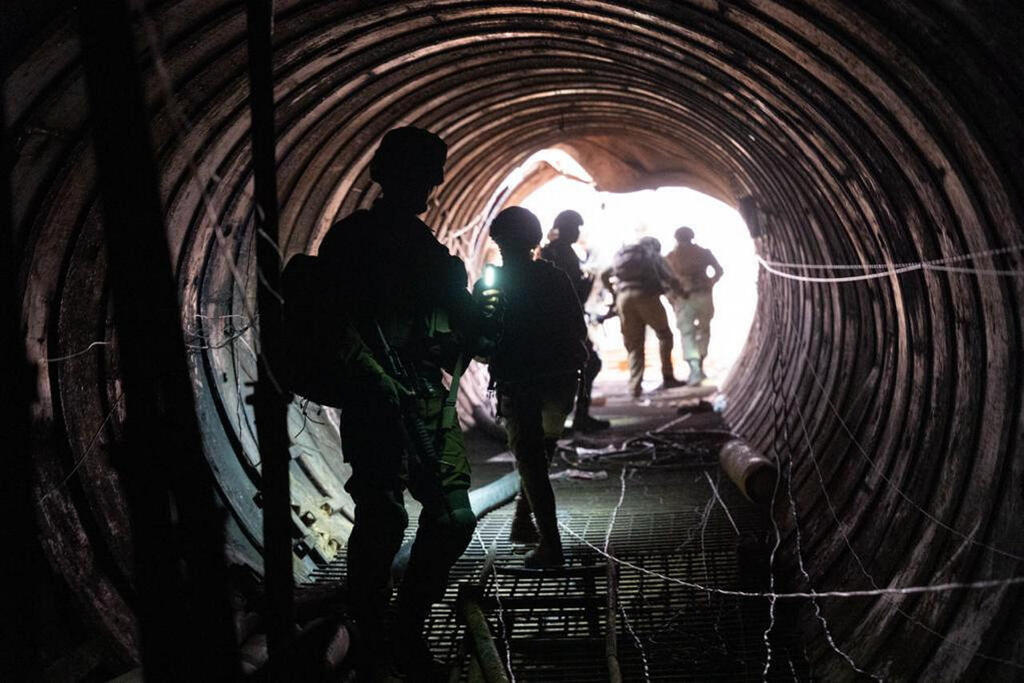
Former Mossad official: Israel's current efforts to cozy up to Qatar are a mistake
Dr. Udi Levi, former head of Mossad task force Harpoon, criticizes Netanyahu's long-time policy regarding Qatar’s financial support of Hamas, saying that ‘Israel provided legitimacy to Qatar with the suitcases of money’
A suitcase with NIS 5 million ($1.3 million) in cash or a deep tunnel big enough for jeeps to travel through - every day new evidence points to the economic strength of Hamas, which after two months of intense ground fighting against the IDF, has not collapsed. Many experts believe that military might alone cannot topple the terrorist organization, but that Hamas must also be strangled financially. While the key to Hamas’ military defeat is in Israel's hands, the key to their economic collapse is in the hands of Qatar.
"Israel is stuck in a crazy situation," says Dr. Udi Levi, the former head of Mossad task force Harpoon which was established to fight financial networks and industries supporting terrorist organizations. Now a senior fellow at the Jerusalem Institute for Strategy and Security, Levi says that only Qatar is capable of economically influencing Hamas but that they will never agree to dismantle the organization.
“This is their baby - there is no world in which Qatar will support Hamas’ removal. Israel's current efforts to cozy up to Qatar are a mistake. We have to learn to conduct classic Middle Eastern diplomacy, which we have never excelled at. This means that while one hand can wield a carrot, the other hand must wield a stick - or a gun. What can be a gun? Qatar is very sensitive to its global image, so if they understand that there is a serious threat to establish an investigation into the origins of 9/11, they may feel pressured. Israel needs to find dramatic leverage over the Qataris and force them to cut off Hamas," says Levi, whose PhD focuses on the Muslim Brotherhood movement.
Levi was one of the main subjects in a recent investigative piece by The New York Times which revealed that Israel was well aware of Hamas’ financial strength but did nothing. Levi’s Mossad task force, which he led since its founding by Ariel Sharon during his premiership, discovered extensive information about Hamas’ economic empire, based not only on Qatari money but also on Iranian funds, a public company in Turkey, investment portfolios managed in various banks, and real estate holdings.
In the 1990s in its early years, Hamas relied primarily on non-profit organizations, but over time, its financial tentacles expanded to more sophisticated investments that were increasingly difficult to trace. Initially, assets were concentrated mainly in friendly Arab countries, but over time, they evolved into legitimate entities, making detection and tracking even more complicated. However, almost a decade ago, the Mossad discovered a secret Hamas investment portfolio and estimated the organization's assets to be valued at roughly half a billion dollars. Over the years, Hamas has enjoyed annual dividends of tens of millions of dollars from their investment portfolio, up to $75 million a year according to some estimates.
Over the years, Levi interacted with various prime ministers, and while Ehud Olmert was very receptive and even tried to weaken Hamas financially, Benjamin Netanyahu ignored the issue, as reflected in The New York Times investigation. Despite warnings from heads of the security system, including former Mossad director Tamir Pardo and former Shin Bet director Yuval Diskin, who believed that it was necessary to address Hamas’ economic power, and certainly, not to transfer it suitcases full of cash from Qatar, Netanyahu treated the matter dismissively, exactly as it was covered in The New York Times report. "The prime minister has the right to decide what he wants to do, but I don't recall even a serious discussion about the implications of Hamas’ economic growth, despite the numbers presented," says Levi.
Levi says that Israel followed Hamas’ financial system intensively for many years. "We invested a lot of effort into building a surveillance system, and we had a lot of information about the organization's funding routes and money transfers. We also conducted many intelligence activities. But in an economic war you need international cooperation, and it took many years to convince the world to formally identify Hamas as a terrorist organization, and not just its military arm. We had extraordinary cooperation from the Americans and we wanted to arrest Hamas financial operatives, but then there were the Qatari suitcases,” Levi says referring to the suitcases full of cash that Israel permitted to be transferred from Qatar to Gaza. “From that point on, both in the United States and around the world, they looked at us differently and said, 'How do you ask us to stop funding Hamas, but you are supplying it with cash yourselves?’ So, from the moment that Israel decided to inject 'legitimate' money into Hamas through Qatar, all our requests to block their economic activities were refused," Levi says with anger.
Dr. Shlomit Wagman, the Global Chief Regulation and Compliance Officer for fintech unicorn Rapyd and the former Director-General of the Israel Money Laundering and Terror Financing Prohibition Authority (IMPA), agrees with Levy. "The story about Turkish company Trend GYO, which was recently publicized, was known and the Americans could have enforced sanctions on it a long time ago, but they gave up and did nothing. Why? The transfer of the Qatari money to Gaza with Israel's approval."
Wagman is referring to a publicly traded company on the Turkish stock exchange for many years that was recently revealed to have been established with foreign funding, including three major shareholders identified with Hamas. "This gave the U.S. legitimacy to block Hamas activities through this company or to take steps against Turkey, who did nothing. But Turkey did nothing because they saw that the U.S. did nothing," she says.
While Wagman is not quoted in the New York Times investigation, it is likely that she was consulted as someone who was at the center of events and has a global reputation in the prevention of money laundering and terrorism financing. When leading IMPA, she also opposed the transfer of funds via suitcases, but this also fell on deaf ears. "Cash has no smell, and there is no way to trace it. Any funding for Gaza in the future will have to go through advanced financial means that can be tracked," she emphasizes.
According to Wagman, since the October 7 attack, many financial entities and countries have begun to scrutinize assets related to Hamas or key figures such as Yahya Sinwar, Ismail Haniyeh, and other senior Hamas members. "France froze Sinwar’s assets just last week, even though he was declared a terrorist many years ago. Until now, no one bothered looking - it just wasn't a priority. When you look, you find even real estate registered under the names of terrorists before they became well-known. In France, they’ve already found this, and I'm sure that soon things will be found in Germany and Switzerland too," she says.
‘Their goal – an Islamic world’
Levi believes that while Qatar is not the sole source of funding for Hamas, the small country with a population similar in size to Gaza – just over 2 million people – is the key to its rise and fall. However, one of the questions now being raised is how consequential Israel’s permitted transfer of Qatari funds was, if Qatar was funding Hamas via other means.
3 View gallery


Sheikh Hamad Al-Thani of Qatar.
(Credit: Mohamed Al Hammadi/UAE Presidential Court/Reuters)
"Their reputation and legitimacy are very important to the Qataris," explains Levi. "Once Israel permitted them to fund Hamas, no one could condemn them for it. That's its real significance - not the money itself. The Qataris are always looking for legitimacy - you can see this in their efforts to host the World Cup, in generous donations to prestigious universities in the United States, and more,” he says referring to the Qatari financial behemoth that has infiltrated wherever possible, from football clubs to iconic buildings in the United States, to European auto and aviation companies.
“Today, everyone talks about the Chinese takeover, but what's truly frightening is the amount of assets that Qatar has accumulated," says Levi, referring to, among other things, the Qatari Investment Authority which is Qatar’s wealth fund, and manages nearly half a trillion dollars and holds stakes in Western symbols such as London Heathrow Airport, Volkswagen, the Paris Saint-Germain football club, New York’s Empire State Building, and countless other properties.
For example, in 2015, Qatar made an official statement that it would invest $35 billion in New York over five years. "The world benefits from the unusual amount of money pouring into it, and therefore, remains silent. We live in a capitalist world, but from the Qataris' perspective, the ultimate goal is an Islamic world, and in that, they are more dangerous than the Chinese or anyone else," Levi warns. "In recent years, there have been more than rumors about a covert economic system between Israel and Qatar, and it is not impossible that there are Israeli companies that Qatar has managed to influence. That's their MO: buy power and influence, but at its core, the main goal is the same – the spread of Islam."
















